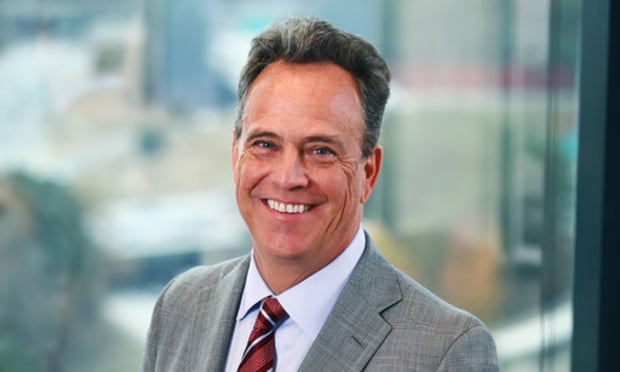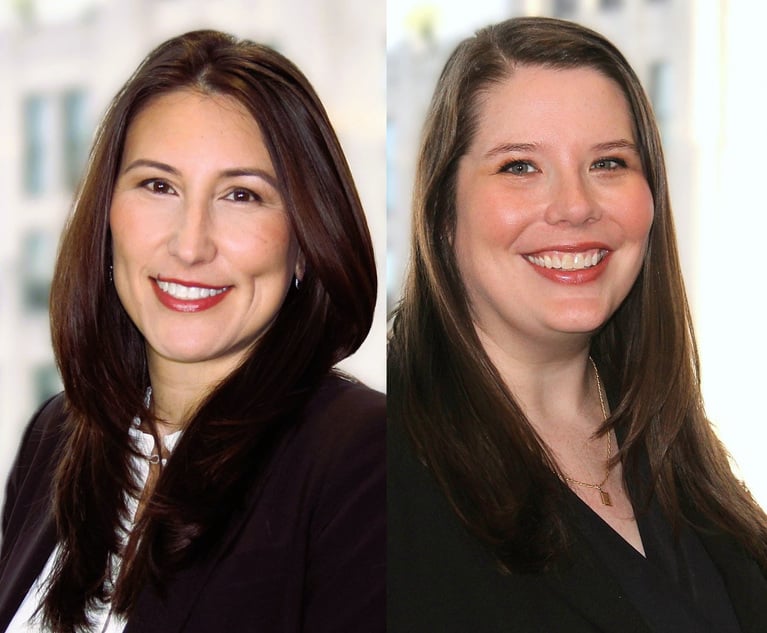Abraham Lincoln's Litigation Lesson: Discourage It
Attorneys today feel every bit as harried as their brethren in the 1850s.
August 31, 2018 at 10:34 AM
5 minute read
 John Miles, CEO of Miles Mediation & Arbitration, Atlanta. (Courtesy photo)
John Miles, CEO of Miles Mediation & Arbitration, Atlanta. (Courtesy photo)
“Discourage litigation. Persuade your neighbors to compromise whenever you can.” —Abraham Lincoln
Much has changed about the practice of law since 1850. Social and cultural advancement make for a more diverse and inclusive bar. Technological advancements allow attorneys to better serve a larger number of clients, and economic growth has resulted in fees that would have left attorneys in Lincoln's time opened-mouthed in amazement. However, today's bar would do well to return to the values embraced by Lincoln and his associates. Passionate about their profession, they respected fellow members of the bar. And they were expert at helping clients efficiently resolve their disputes.
In his book “Lincoln,” David Herbert Donald describes how the circuit judge and his entourage of lawyers, including the future president, traveled the Illinois circuit. Arriving in a town on Saturday or Sunday, “the next morning the lawyers would be approached by litigants, often with their local counsel, who were glad to have the help of more experienced attorneys from Springfield and Bloomington—the two largest towns on the circuit. Business had to be transacted speedily—declarations and travers drafted, petitions written, lists of witnesses drawn up—so that the judge could hear cases on Monday afternoon.”
After court, the traveling lawyers prepared new cases or “could explore the meager recourses of the little towns they visited.” Mostly attorneys had to amuse themselves and, according to Lincoln's law partner, William Herndon, they engaged in “fights—foot and horse races—knock downs—wrestling—gambling etc. Whiskey, was abundant and freely used.” After supper the judge and the lawyers might attend some local amusement, such as a circus or a lecture, but if there was no other diversion they sat before the fire and swapped tall tales and anecdotes.
No attorney riding circuit would act unprofessionally or unethically. This wasn't because they were more ethical than attorneys today; rather, it was due to the intimate nature of the group they traveled with. Friends and colleagues, these men litigated against each other on a daily basis. An attorney who behaved unethically soon found himself looking for another profession.
Lincoln loved the practice of law and encouraged attorneys to adhere to the highest ethical standards. He wrote, “Let no young man, choosing the law for a calling, for a moment yield to this popular belief [that lawyers are necessarily dishonest]. Resolve to be honest at all events; and if, in your own judgment, you can not be an honest lawyer, resolve to be honest without being a lawyer. Choose some other occupation.”
These attorneys resolved disputes efficiently. The circuit moved quickly from town to town. An attorney met a client on Sunday. Accessed their case and prepared to try or resolve the case on Monday. Given this hectic pace, it's not surprising that many heeded Lincoln's sage advice: “Persuade your neighbors to compromise whenever you can. Point out to them how the nominal winner is often a real loser—in fees, expenses, and waste of time. As a peacemaker the lawyer has a superior opportunity of being a good man. There will still be business enough.”
Alternative Dispute Resolution applies the lessons of Lincoln's day. As a young attorney, I listened to a salesman extol the virtues of a new fax machine: “It will cut your workday in half.” Technology promised to make us more efficient and improve our lives. Technology delivered on this promise. Our new fax machine didn't cut my workday in half, but I was able to communicate more quickly. Few of us would give up our laptops or cellphones.
Although emails and texts increase our ease of communication, they insulate us from each other. The next time you are in a restaurant, observe how many people sit across the table from each other staring at their phones. Texts and emails also make it easier to communicate in a tone that is unproductive, if not unprofessional. It's harder to be disagreeable sitting across the table from your opponent when you're speaking face to face.
Attorneys today feel every bit as harried as their brethren in the 1850s. Stress caused by uncomfortable travel, cramped accommodations and speedy trials has been replaced with the sometimes impossible task of balancing a successful law practice with a personal life. Attorneys I know went to law school to make a positive difference in people's lives, not to be overwhelmed by the frenzied pace of litigation. ADR allows attorneys to return to a time where cases resolved face to face with civility. Attorneys can take a deep breath, focusing on one case in a welcoming environment. By orchestrating a successful resolution, an expert neutral helps attorneys do what they do best—making a positive impact in the lives of their clients
John Miles is the CEO of Miles Mediation & Arbitration. He oversees neutral training and development at Miles.
This content has been archived. It is available through our partners, LexisNexis® and Bloomberg Law.
To view this content, please continue to their sites.
Not a Lexis Subscriber?
Subscribe Now
Not a Bloomberg Law Subscriber?
Subscribe Now
NOT FOR REPRINT
© 2025 ALM Global, LLC, All Rights Reserved. Request academic re-use from www.copyright.com. All other uses, submit a request to [email protected]. For more information visit Asset & Logo Licensing.
You Might Like
View All

CFPB Proposes Rule to Regulate Data Brokers Selling Sensitive Information
5 minute read
Trending Stories
- 1Linklaters Hires Four Partners From Patterson Belknap
- 2Law Firms Expand Scope of Immigration Expertise, Amid Blitz of Trump Orders
- 3Latest Boutique Combination in Florida Continues Am Law 200 Merger Activity
- 4Sarno da Costa D’Aniello Maceri LLC Announces Addition of New Office in Eatontown, NJ, and Named Partner
- 5Friday Newspaper
Who Got The Work
J. Brugh Lower of Gibbons has entered an appearance for industrial equipment supplier Devco Corporation in a pending trademark infringement lawsuit. The suit, accusing the defendant of selling knock-off Graco products, was filed Dec. 18 in New Jersey District Court by Rivkin Radler on behalf of Graco Inc. and Graco Minnesota. The case, assigned to U.S. District Judge Zahid N. Quraishi, is 3:24-cv-11294, Graco Inc. et al v. Devco Corporation.
Who Got The Work
Rebecca Maller-Stein and Kent A. Yalowitz of Arnold & Porter Kaye Scholer have entered their appearances for Hanaco Venture Capital and its executives, Lior Prosor and David Frankel, in a pending securities lawsuit. The action, filed on Dec. 24 in New York Southern District Court by Zell, Aron & Co. on behalf of Goldeneye Advisors, accuses the defendants of negligently and fraudulently managing the plaintiff's $1 million investment. The case, assigned to U.S. District Judge Vernon S. Broderick, is 1:24-cv-09918, Goldeneye Advisors, LLC v. Hanaco Venture Capital, Ltd. et al.
Who Got The Work
Attorneys from A&O Shearman has stepped in as defense counsel for Toronto-Dominion Bank and other defendants in a pending securities class action. The suit, filed Dec. 11 in New York Southern District Court by Bleichmar Fonti & Auld, accuses the defendants of concealing the bank's 'pervasive' deficiencies in regards to its compliance with the Bank Secrecy Act and the quality of its anti-money laundering controls. The case, assigned to U.S. District Judge Arun Subramanian, is 1:24-cv-09445, Gonzalez v. The Toronto-Dominion Bank et al.
Who Got The Work
Crown Castle International, a Pennsylvania company providing shared communications infrastructure, has turned to Luke D. Wolf of Gordon Rees Scully Mansukhani to fend off a pending breach-of-contract lawsuit. The court action, filed Nov. 25 in Michigan Eastern District Court by Hooper Hathaway PC on behalf of The Town Residences LLC, accuses Crown Castle of failing to transfer approximately $30,000 in utility payments from T-Mobile in breach of a roof-top lease and assignment agreement. The case, assigned to U.S. District Judge Susan K. Declercq, is 2:24-cv-13131, The Town Residences LLC v. T-Mobile US, Inc. et al.
Who Got The Work
Wilfred P. Coronato and Daniel M. Schwartz of McCarter & English have stepped in as defense counsel to Electrolux Home Products Inc. in a pending product liability lawsuit. The court action, filed Nov. 26 in New York Eastern District Court by Poulos Lopiccolo PC and Nagel Rice LLP on behalf of David Stern, alleges that the defendant's refrigerators’ drawers and shelving repeatedly break and fall apart within months after purchase. The case, assigned to U.S. District Judge Joan M. Azrack, is 2:24-cv-08204, Stern v. Electrolux Home Products, Inc.
Featured Firms
Law Offices of Gary Martin Hays & Associates, P.C.
(470) 294-1674
Law Offices of Mark E. Salomone
(857) 444-6468
Smith & Hassler
(713) 739-1250







